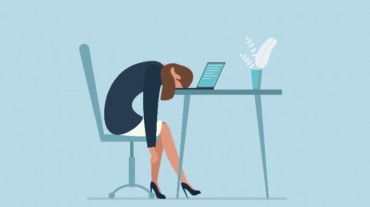
Ever had a friend, colleague, or even boss tell you that taking a vacation will fix that feeling of constant exhaustion? Well, if the answer is yes and you are looking at taking time off, it is time to reconsider. The truth is that a few days of vacation won’t help with severe burnout.
Interesting, according to a study published in the Journal of Applied Psychology, the vacation relief fades out within a week or two once you are back at work.
There is no doubt that you get some relief when you take a break from your routine but many also report feeling stressed while on vacation due to the multiplying workload they’d have to deal with once back.
According to experts, you reach the stage of burnout when you are unable to strike a healthy balance between work and personal life.
“Taking a vacation is a temporary solution to burnout. Once you come back, the problems are still going to persist unless you address them. Addressing burnout is not straightforward. Exploring the causes and your options can ease the burden. A vacation can, perhaps, offer you a pause and help you analyse what needs to be changed once you get back, but a vacation in itself won’t cure the problem. However, taking a long weekend vacation, or simply putting away work on weekends can help you revitalize,” explains Dr Rahul Khemani, a renowned psychiatrist at Wockhardt Hospital, Mumbai.

Burnout is a state of mental and physical exhaustion when the demand for energy surpasses the supply. In most cases, the term ‘burnout’ is used when speaking of work pressure but other consistent stressors can lead to burnout as well.
Burnout, most commonly, refers to the pressure that results from an increasingly demanding job but it can also be due to having a rigorous schedule with little or no breaks, dealing with relationship problems that are circular, or even caring for a loved one with a serious or chronic condition.
Overall, it can lead to lethargy, stress and depleted levels of energy. If you try to do too much, it can also lead to exhaustion and burnout.
1. Forgetfulness and difficulty concentrating
2. Diminished pride in your work
3. Losing sight of your goals or yourself
Select Topics of your interest and let us customize your feed.
PERSONALISE NOW4. Difficulty maintaining relationships and being present with loved ones
5. Frustration and irritability with co-workers
6. Unexplained muscle tension, pain, fatigue and insomnia
7. Unfortunately, burnout is not good for your mental health

“The obvious impact is that it can negatively affect your work and productivity. It keeps you from enjoying hobbies, family time or relaxing outside of work. It also increases the risk of depression and suicide. In addition, it also causes a rise in the risk of developing physical ailments such as diabetes and cardiovascular diseases,” concluded Dr Khemani.
Ladies, you need to find the root cause of your stress and exhaustion before booking that vacation.